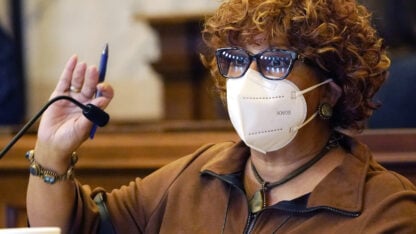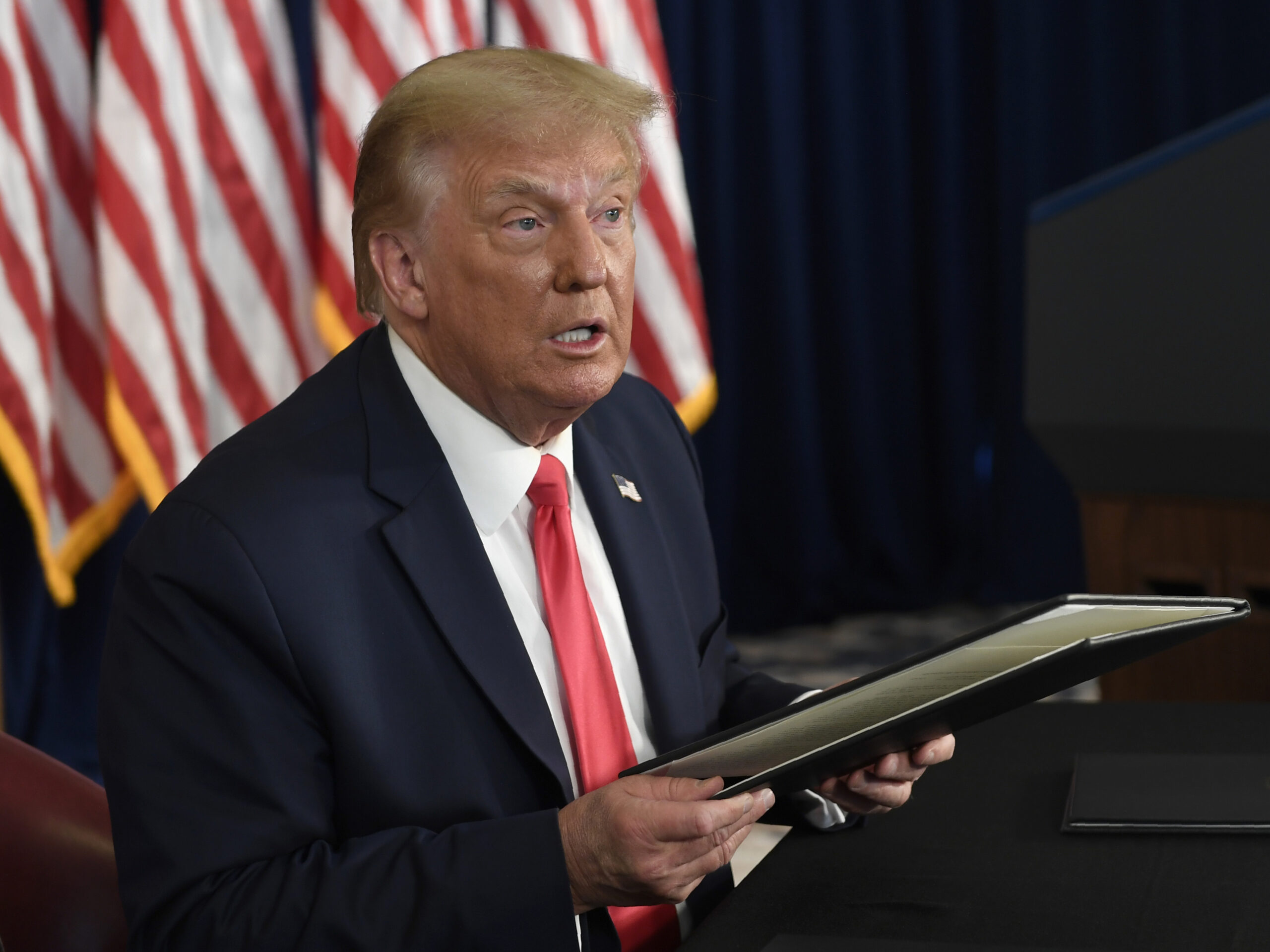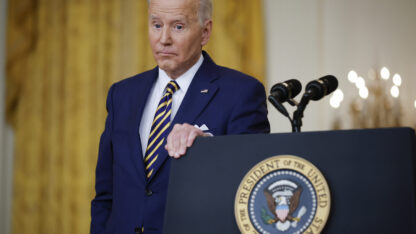The Nov. 6 midterms, and the prolonged vote count afterward, tested Georgian’s trust in how the state’s elections are administered.
Multiple lawsuits were filed, and Democrats and Republicans, without evidence, accused each other of trying to steal the election.
Now, less than two weeks after the statewide results were certified, voters will pick a new Secretary of State, Georgia’s top election official.
Neither Republican Brad Raffensperger nor Democrat John Barrow could secure a majority of votes in the Nov. 6 general election, pushing their race to a runoff on Tuesday.
The winner of the runoff will replace interim Secretary of State, Robyn Crittenden, who was appointed by Republican Gov. Nathan Deal when former Republican Secretary of State Brian Kemp resigned.
Kemp had just declared himself governor-elect. He defeated Democrat Stacey Abrams by about 55,000 votes, or 1.4 percent.
Georgia’s next Secretary of State faces the task of restoring trust in the state’s elections and they’ll be tested almost immediately. The first two years of the upcoming four year term may be the most significant for any Secretary of State in at least the previous decade.
The state is likely to switch to new voting machines. Georgia’s top election official will oversee the implementation.
The candidates differ slightly in their preference for what the new voting system will look like, something they may not even have control over depending on what laws are passed by the state legislature.
But, Barrow and Raffensperger are more starkly divided on controversial policies implemented in the past eight years by Kemp’s administration, especially those that pose an obstacle to voting in the name of preventing fraud.
While Barrow proposes administrative changes to some of the policies implemented under Kemp, Raffensperger’s plan appears to be continuing on the same path.
‘Use it or lose it’ purges, and ‘exact match’
The state legislature and the governor set voting laws, but the Secretary of State can often determine how they’re carried out, which in some cases can be more influential than the laws themselves.
In Georgia, if an individual doesn’t vote or make contact with election officials over a three-year span, they don’t vote for two more federal election cycles, and they don’t respond to notices from the state, they’ll be purged from the voter registration list.
At least nine states have similar “use it or lose it” policies, and the U.S. Supreme Court in a 5-4 decision earlier this year approved Ohio’s, stalling a lawsuit over Georgia’s.
The state’s policy was passed by a Democratic-controlled legislature in the nineties, but implementation of voter purges, including uncontroversial removals of people who have moved or died, appeared to ramp up under Kemp.
Civil rights groups claim “use it or lose it” purges disproportionately affect people of color, and young people, because they’re less regular voters.
“You really want to keep the list clean, fresh, and accurate,” said Raffensperger in a debate on WABE’s “Closer Look.”
Raffensperger stresses the importance of the purges as a means to prevent voter fraud, and has not proposed any changes to how they were carried out under Kemp.
Barrow, however, said the state should do more to communicate with people who may be removed from the registration list than just sending them multiple postcards, the current practice.
“I don’t think you should have to vote in elections you don’t agree with in order to vote in elections you do believe in,” said Barrow in the “Closer Look” debate.
Barrow also hopes to alter the “exact match” policy carried out while Kemp was Secretary of State.
Under the policy, information on voter registration applications is compared to other government databases, and applications are flagged for small errors like a misspelling or a missing “jr.” or “sr.”
In early October, the Associated Press found 53,000 voter registration applications were on hold, many under “exact match” because of small errors. Of the applications on hold, the AP found nearly 70 percent were from African-American registrants.
Barrow views the process as unfair, and said the state should do more to check the information on voter registration applications, verifying in other ways that it’s accurate.
Like other policies implemented by the Kemp administration, Raffensperger hasn’t indicated he wants to see any changes to “exact match.”
In radio debates, he focused on the possibility of voter fraud, which is very rare in Georgia.
“It’s something you always have to remain vigilant on, and never lower your vigilance,” Raffensperger said on the Shelly Wynter radio show, “Because things do happen, and people can make honest mistakes, or people can make other mistakes, but we want to make sure that only Americans are voting.”
For months ahead of the Nov. 6 election, Democrats and civil rights groups called for Kemp to step aside as the state’s top election official. He did not, until after he declared himself the winner.
Barrow said he would recuse himself from the election process, or resign, if he runs for another office.
“I think it’s a mistake not to do that,” he said. “When I was a little boy, my daddy taught me that no man can be a judge of his own case. And I think it follows with even greater force that no politician can be the judge of his own election.”
Barrow made the comments at an Atlanta Press Club debate that Raffensperger declined to attend. It was the only televised debate ahead of the runoff.
Raffensperger’s campaign did not respond to WABE’s request for an interview for this story.
Barrow vs. Raffensperger
A state Representative from John’s Creek, during Raffensperger’s short time in the legislature, he wasn’t publicly outspoken or well known.
Raffensperger is an engineer and business owner, who in a campaign filing from last year, listed his net worth at $26.5 million.
Barrow, by comparison, listed his net worth at $850,000.
Down-ballot races like Secretary of State attract relatively small campaign donations, and personal wealth can play an outsized role.
President Donald Trump, in a rare endorsement of a down-ballot candidate, Tweeted his support for Raffensperger.
Messages from the Georgia Republican Party have echoed rhetoric used as Democrat Stacey Abrams’ campaign was pushing for votes to be counted in the governor’s race.
“John Barrow is [Democrats] greatest hope to increase illegal voting in Georgia and steal elections from lawful voters,” state GOP chairman John Watson wrote in an email.
Abrams endorsed Barrow.
“He and I do not agree on everything,” said Abrams. “But we agree on the importance of fair elections, and he has run a campaign that is filled with integrity, intentionality and with a clear sense of what is possible in Georgia.
Barrow is a former member of congress from east and central Georgia. In the early 2010s, he was known as the last white, Democrat representing the South.
He eventually lost his spot in congress in 2014 after Republicans redrew his district’s boundaries multiple times.









